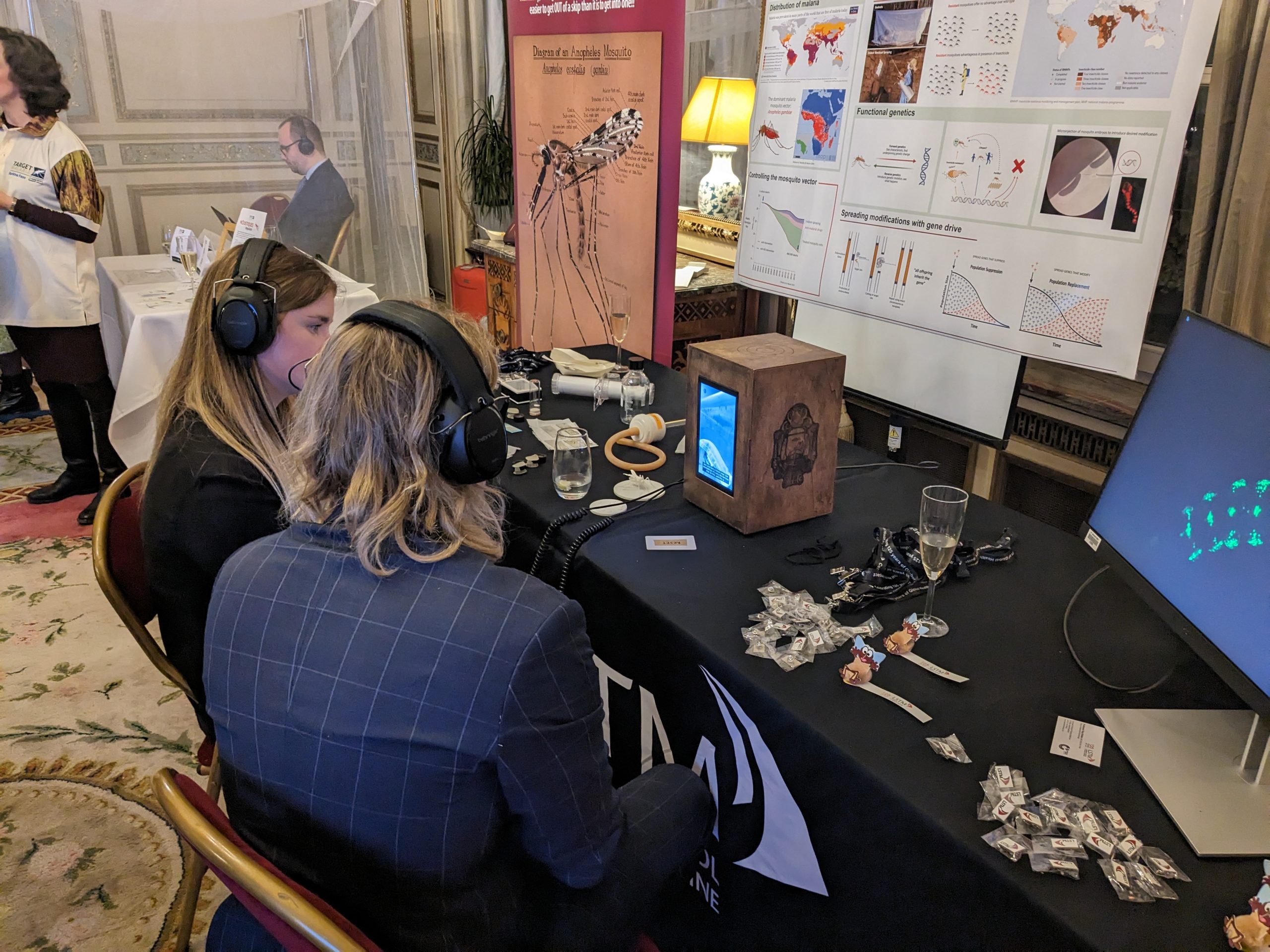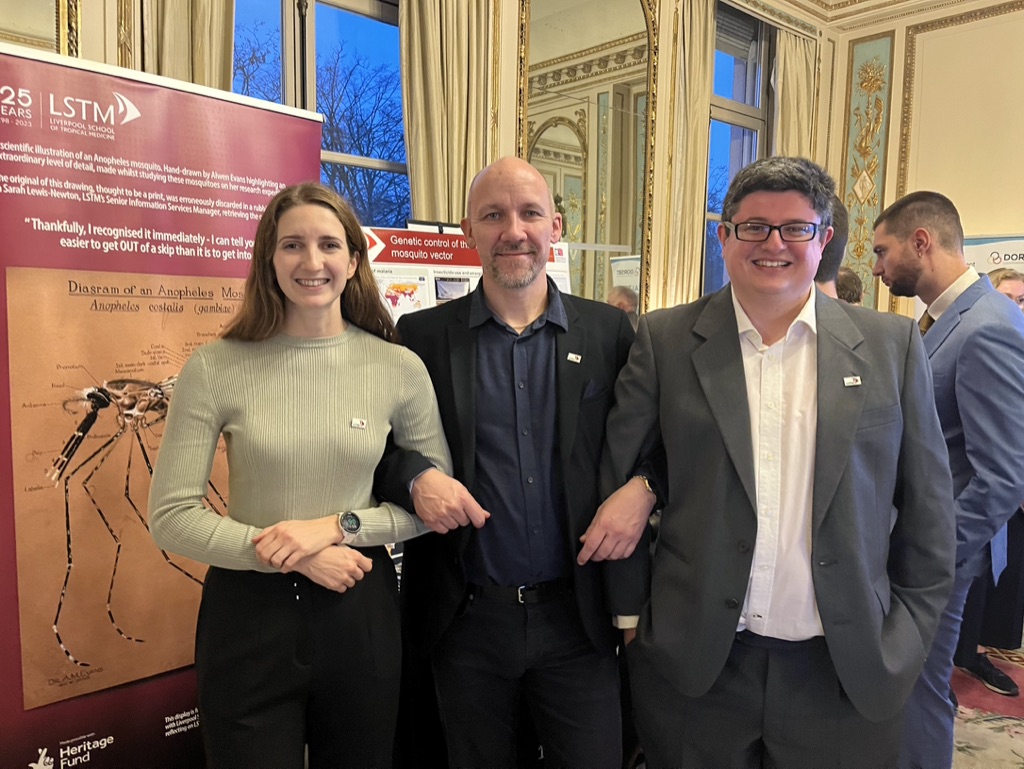By Zachary Stavrou – Dowd, Research Technician, Liverpool School of Tropical Medicine
We live on a pale blue dot where all life is connected – from single cells to blue whales. Our actions here impact not only our health but all life. To ensure our continued survival, we need an integrated approach that encompasses the environment, human health and animal health. This is what we call the One Health approach.
The UK Mission to the EU recently hosted a One Health Fair to showcase how UK institutions are pioneering solutions in this holistic approach. The exhibits ranged from environmental sampling for detecting human and animal pathogens to using AI to protect crucial honeybee colonies. The Functional Genetics group at the Liverpool School of Tropical Medicine (LSTM) joined colleagues from Target Malaria to showcase how functional genetics and gene drive can be used as a One Health solution, in particular through the development of innovative vector-disease control solutions.
 Participants at the One Health Fair event learning about the history of vector biology using the Liverpool School of Tropical Medicine time machine. Photograph: Prof. Tony Nolan, Liverpool School of Tropical Medicine.
Participants at the One Health Fair event learning about the history of vector biology using the Liverpool School of Tropical Medicine time machine. Photograph: Prof. Tony Nolan, Liverpool School of Tropical Medicine.
Engaging with decision-makers is vital for the progression of our work, and it was inspiring to be part of this event and contribute to fostering a broader exchange of ideas. As part of our stand, we discussed the role functional genetics can play in insecticide resistance monitoring. Long-lasting insecticide-treated bed nets are still the primary form of control for malaria-transmitting mosquitoes. However, their efficacy has been undermined by the rise of insecticide resistance. This has been aggravated by the lack of suitable insecticides classes, as those applied on bed nets must be non-toxic to humans.
 Dr. Nicole Page, Prof. Tony Nolan and Zachary Stavrou – Dowd from the Liverpool School of Tropical Medicine, at the One Health Fair event. Photograph: Delphine Thizy, Target Malaria.
Dr. Nicole Page, Prof. Tony Nolan and Zachary Stavrou – Dowd from the Liverpool School of Tropical Medicine, at the One Health Fair event. Photograph: Delphine Thizy, Target Malaria.
Geneticists and bioinformaticians are very good at generating data on mutations in genes targeted by insecticides. Yet, the challenge lies in harnessing this data effectively. Knowing that there is a mutation does not mean that this is enabling insecticide resistance. At LSTM, we are exploring the use of CRISPR technology to add these mutations into susceptible mosquitoes in order to evaluate if they have become insecticide resistant. This data can then be used to monitor the rise of insecticide resistance, allowing field workers to adjust the control strategies accordingly. How does this relate to the One Health approach? Better data means better monitoring and better use of insecticides.
A focal point of our stand was the LSTM time machine, designed to commemorate the school’s 125th anniversary as the first institute dedicated to the study of tropical diseases. At LSTM, we are also exploring the same techniques described above to reveal novel genetic targets for genetic control. To avoid a silent spring, our focus is now on the development of new sustainable measures such as gene drive technology to target the mosquito species responsible for most malaria transmission in Africa. Embracing a One Health approach means exploring innovative solutions to address issues such as that of the mosquitoes’ evolving resistance to insecticides in order to save lives.
Recent posts
